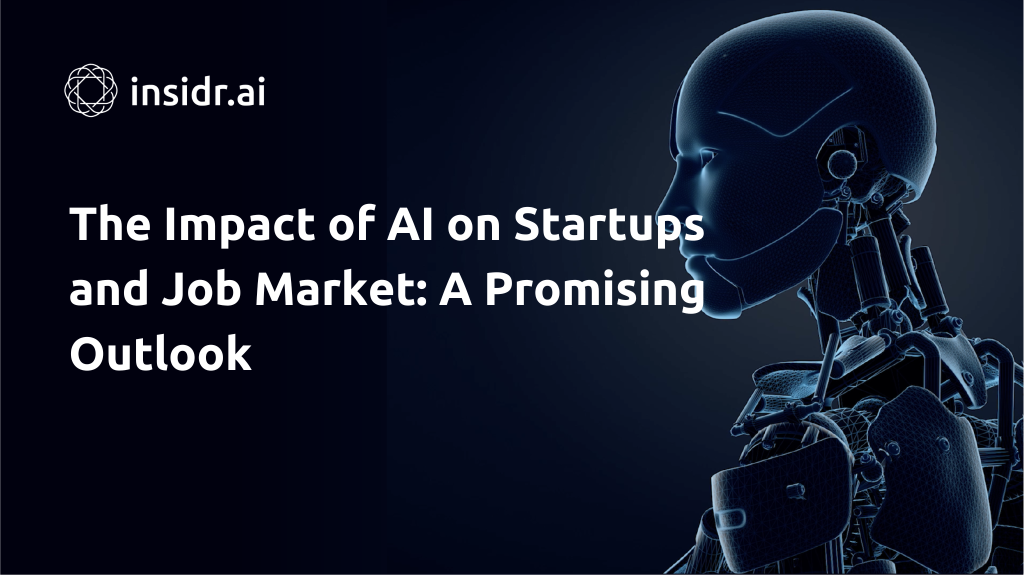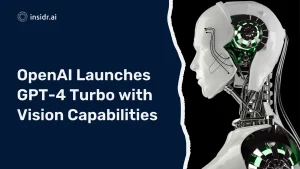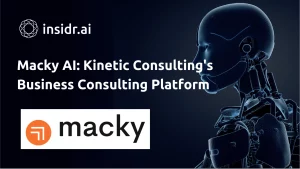
Artificial Intelligence (AI) has been rapidly advancing, revolutionizing various industries with its transformative capabilities.
In recent years, there has been much speculation about the role of AI in the startup ecosystem and its potential to replace jobs.
However, visionary leaders like the CEO of Airbnb, Brian Chesky, believe that AI will instead pave the way for millions of startups, opening up new opportunities for innovation and growth.
In this article, we will explore how AI is transforming the startup landscape and debunk the notion that it will replace jobs.
AI Empowering Startups
Enhancing Efficiency and Productivity
AI technologies, such as machine learning and natural language processing, have the potential to streamline operations within startups.
Through automation and intelligent algorithms, routine and time-consuming tasks can be automated, freeing up valuable time for entrepreneurs and employees to focus on more strategic initiatives.
This increased efficiency leads to higher productivity levels, allowing startups to allocate resources more effectively.
Enabling Data-Driven Decision Making
Startups can leverage AI to gather and analyze vast amounts of data, deriving actionable insights that drive decision making.
By implementing AI-powered analytics tools, startups gain a competitive edge by understanding market trends, consumer behavior, and optimizing their strategies accordingly.
Data-driven decision making enables startups to make informed choices and adapt quickly to changing market dynamics.
Streamlining Operations and Processes
AI-powered tools and platforms can optimize various operational aspects of startups.
From supply chain management to inventory control, AI algorithms can identify patterns, predict demand, and optimize resource allocation.
Additionally, chatbots and virtual assistants can streamline customer support, providing immediate responses and personalized experiences, enhancing customer satisfaction.
Job Creation through AI
New Roles and Skill Requirements
Contrary to popular belief, the rise of AI in startups will create new job opportunities rather than replace existing ones.
As AI technology advances, there will be a growing demand for professionals with expertise in AI development, machine learning, data science, and ethical AI implementation.
Startups can invest in upskilling their workforce and foster a culture of continuous learning to adapt to these evolving job requirements.
Human-AI Collaboration
AI is not intended to replace human workers; instead, it empowers them to perform tasks more efficiently and effectively.
Through human-AI collaboration, startups can augment their workforce by leveraging AI technologies to automate repetitive tasks, handle data analysis, and assist in decision making.
This collaboration enables employees to focus on creativity, problem-solving, and relationship-building, enhancing overall productivity.
Economic Growth and Entrepreneurship
The integration of AI in startups can spur economic growth by fostering innovation and entrepreneurship.
With AI-driven tools and platforms, startups can reach new markets, create innovative products and services, and drive economic value.
The accessibility and affordability of AI technologies provide aspiring entrepreneurs with opportunities to establish their startups, contributing to job creation and economic development.
AI's Role in Startup Success
Personalization and Customer Experience
AI enables startups to personalize customer experiences by leveraging data analytics and machine learning algorithms.
By understanding individual preferences and behavior patterns, startups can offer personalized recommendations, targeted marketing campaigns, and tailored user experiences.
This level of personalization enhances customer satisfaction, loyalty, and drives business growth.
Predictive Analytics for Market Insights
Startups can leverage AI-powered predictive analytics to gain valuable market insights.
By analyzing historical and real-time data, startups can identify emerging trends, understand customer demands, and make data-driven decisions to stay ahead of the competition.
Predictive analytics empowers startups to forecast market shifts, identify opportunities, and adapt their strategies accordingly.
Automation and Scalability
AI automation plays a crucial role in startups’ scalability.
By automating repetitive and manual tasks, startups can optimize resource allocation, reduce operational costs, and scale their operations more efficiently.
AI-powered tools can automate customer interactions, data analysis, and other processes, enabling startups to focus on innovation, expansion, and building their competitive advantage.
Challenges and Ethical Considerations
Data Privacy and Security
As startups embrace AI, they must ensure the privacy and security of the data they collect and process.
Safeguarding sensitive information and complying with data protection regulations are paramount.
Implementing robust cybersecurity measures, encryption protocols, and transparency in data usage build trust among customers and stakeholders.
Bias and Fairness
AI systems can be susceptible to biases if not carefully designed and trained. Startups must be vigilant in ensuring fairness and inclusivity in their AI applications.
By incorporating diverse datasets and adopting ethical AI practices, startups can mitigate biases and ensure their technology serves all users equitably.
Ethical AI Implementation
Startups should prioritize ethical considerations when developing and implementing AI solutions.
Ethical AI frameworks and guidelines can help navigate complex ethical dilemmas, such as accountability, transparency, and the impact on society.
By embedding ethics into their AI strategies, startups can build trust, foster responsible AI innovation, and contribute positively to society.
Conclusion
AI’s impact on startups extends beyond job displacement, instead fostering innovation, job creation, and economic growth.
Startups that embrace AI technologies gain a competitive advantage by improving efficiency, making data-driven decisions, and enhancing customer experiences.
While challenges such as data privacy and biases exist, ethical AI implementation can address these concerns.
As we move forward, the synergy between human creativity and AI’s transformative capabilities will unlock endless possibilities for startups, shaping a promising future.
Discover More AI Tools
Every week, we introduce new AI tools and discuss news about artificial intelligence.
To discover new AI tools and stay up to date with newest tools available, click the button.
To subscribe to the newsletter and receive updates on AI, as well as a full list of 200+ AI tools, click here.







